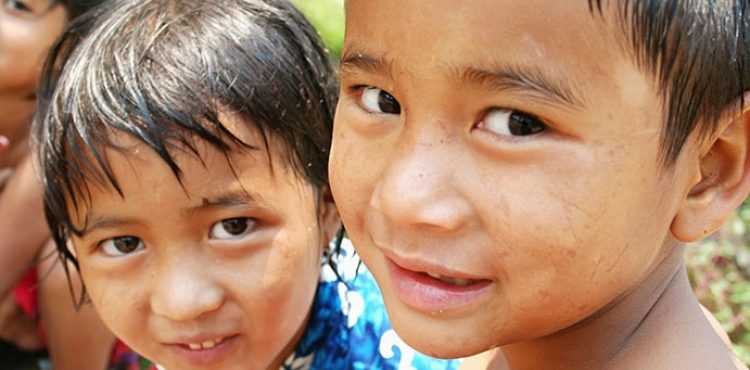
Urgent action needed in Southeast Asia to tackle cancer
Cancer will become an overwhelming burden on society and healthcare systems across Southeast Asia, if swift action is not taken, according to a new research by The George Institute for Global Health.
The ASEAN Costs in Oncology (ACTION) study examined the human cost of cancer of 9,513 patients across eight countries in the region – Cambodia, Indonesia, Laos, Malaysia, Myanmar, Philippines, Thailand, and Vietnam – aimed at assessing the impact of cancer on household economic wellbeing, patients survival, and quality of life. The study provides evidence for Southeast Asian countries to put in place policies that can improve access to cancer care and provide adequate financial protection from the burden of costs of the illness.
Professor Mark Woodward, MSc, PhD, from the George Institute for Global Health, said: “The cost of cancer does not only affect patients, but also their families and society as a whole. We hope the evidence from the ACTION Study will help governments of countries in Southeast Asia develop strategies and policies for combating cancer for the long term.”
The aging populations and rising cancer burden in the region are leading to the risk of cancer becoming an epidemic that will overwhelm Southeast Asia. It is estimated that there were more than 770,000 new cases of cancer and 527,000 cancer deaths in the region in the year 2012. The number of new cases is expected to rise about 70% to reach 1.3 million by 2030.
With the growing burden of all cancers in the region, urgent action is needed to protect populations from the financial burden of the disease and to reduce the impact of loss of economic productivity. There is also an urgent need to create and better utilise existing social safety nets to prevent citizens from poverty and economic hardship after cancer diagnosis, particularly in socioeconomically disadvantaged communities.
“When we look at the data, we can see that the costs associated with non-communicable diseases such as cancer are a significant driver of poverty in Southeast Asia. By creating and utilizing social safety nets, governments can prevent their citizens from poverty and economic hardship after being diagnosed with cancer,” added Professor Woodward.
The study revealed that of the 9,513 cancer patients followed up at 12 months, close to half experienced financial catastrophe, whereas 29% had died. Additionally, almost half or 44% of the patients who survived experienced economic hardship as a consequence of the cancer, of which a majority ended up using their life savings.
Professor Nirmala Bhoo-Pathy MD, PhD, Cancer Epidemiologist at the University of Malaya, shared an example that on average, the cost for breast cancer treatment could reach up to USD 15,000 per year. Patients whose income was USD 1,100 a month or lower would have a very difficult time to pay for their treatment. With average GDP per capita in 2014 for the 8 countries being USD 3,553.75, most cancer patients had to use money from their savings and experienced financial catastrophe in maintaining their quality of life. Financial catastrophe is defined as having to spend 30% or more of the household income on out-of-pocket expenses for cancer treatment.
Professor Woodward further emphasized that if cancer was not prioritized and seen as a national issue involving both national and local government, it would not only affect the patient’s household, but also the society and the economy. In lower and lower-middle income countries, there is a need to create social safety nets that support the poorest, especially when there is an early diagnosis.
Data from the study shows that nearly 88% of the cancer patients were diagnosed for the first time at the 2nd up to the 4th stage of cancer, whereas only 12% of the patients were diagnosed at the 1st stage. Therefore, efforts to increase earlier detection of cancer can improve the survival rate and reduce the economic burden attributed to cancer. This can be achieved by governments implementing high-quality screening programs, covering large numbers of the population.
In Indonesia, the ACTION Study was first started in 2012 involving 12 major hospitals to monitor 2,335 cancer patients – nearly a quarter of the total number of patients involved in the study. To combat cancer effectively, Southeast Asian countries would need to implement a national cancer-control program with the country’s existing health system.
Professor Dr. Hasbullah Thabrany, MPH, Dr.PH., a lecturer of Public Health Policy at the University of Indonesia, explained: “In line with the ACTION Study’s recommendation, the Indonesian government has implemented an early cancer detection program at the local health clinic level, and at primary healthcare service providers. And, last year launched the universal healthcare coverage program. This has helped cut down healthcare costs for patients greatly and is a good start towards controlling cancer.”
Similarly, Professor Nirmala explained that though it was said that Malaysia had achieved universal health coverage, this study revealed that the government needs to improve financial risk protection for cancer patients. This includes not just improvements in quality, access, and use of cancer screening programs and cancer care services, especially in the public health sector, but also a re-examination of the country’s health financing system to ensure public funds are being channelled to those who need them the most.
The economic burden of cancer treatments to health systems, individuals, and their households will continue to grow as the availability of medical technologies and treatments expands across Southeast Asia. However, this growth is uneven in the region, leaving both patients and doctors burdened with the increase of demand for cancer treatment.
Melati, a 52-year old breast cancer patient living in Jakarta, highly appreciates the government’s program. However, with the increasing number of cancer patients, she explained that conditions in the ward were often crowded with long queues. “Patients need to be proactive when speaking with their doctor and should not just stay silent. Doctors have to take care of a lot of patients, so if we want something explained, we need to ask. They would be happy to explain. If not, then they would move to the next patient,” shared Melati.
Meanwhile in Malaysia, Mei, a 32-year old breast cancer patient, shares that she was fortunate for the insurance having covered the costs of her expensive treatment. Despite this, she still sees an impact on her household income from health supplements and other out-of-pocket expenses. “I’m glad that the bulk of the treatment cost was covered, but the extra expenses for buying health supplements and other health needs really took a toll on our monthly household income,” said Mei.
“We hope with the result and findings from the ACTION Study, governments are able to form strategies to control cancer, and maintain the productivity of their people and economy. Establishing safety nets do not only support economic growth, but more importantly provide hope for the people in fighting this terrible disease, giving them access to the best treatment available,” closed Professor Woodward.



